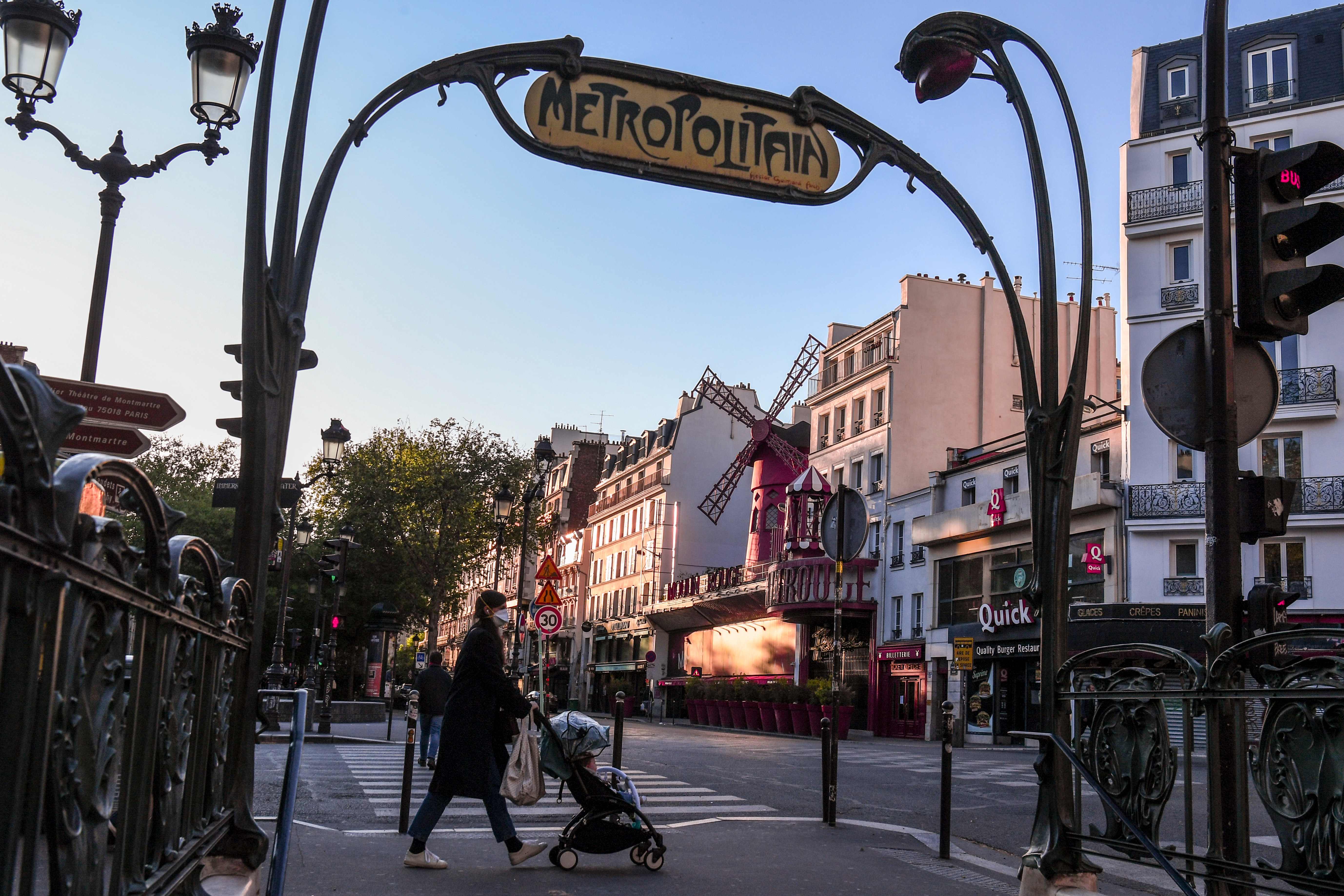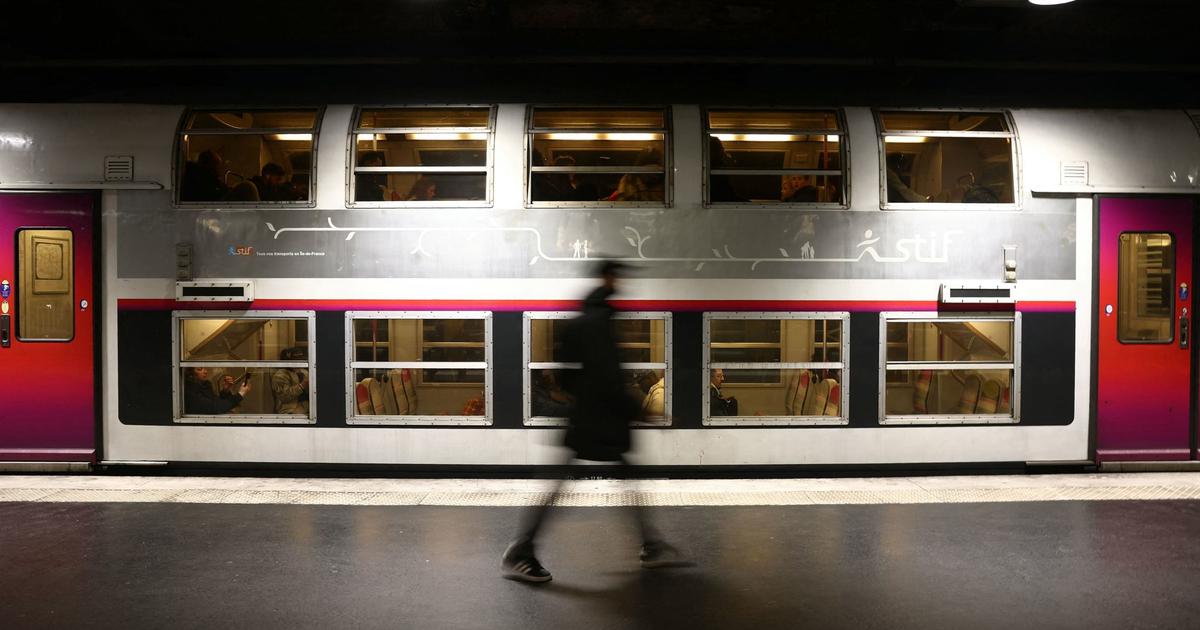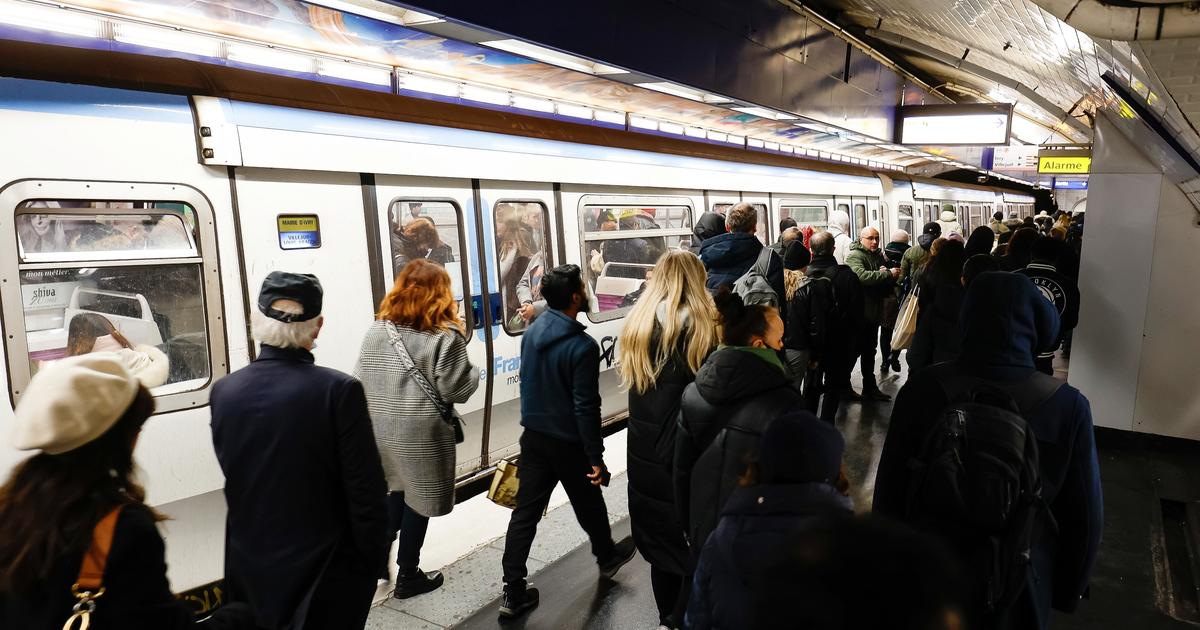With its 12 million inhabitants, Île-de-France is still far from deconfinement. While in normal times 5 million people - 500,000 today - use public transport daily in this region, especially to get to work, it is impossible to imagine metro trains again crowded at peak hours from May 11. " The Ile-de-France region will not be defined overnight, " warns Valérie Pécresse, president of the region and Ile-de-France mobilités (IDFM), in an interview with the Parisian . Ile-de-France residents will therefore still need to be patient. What to expect in transportation after May 11?
A very gradual recovery in metro and RER traffic
By that date, 50% of the transport network should be returned to service. " The SNCF and the RATP should propose an offer of the order of 50% of the traffic, against 30% currently ", specifies the president of IDFM. However, traffic could be increased " beyond 50% " on certain lines that are particularly busy in normal times. Like RER A, RER B, RER D, or tram 1, line 13 of the metro, and line 1. Lines that cross " popular areas in which the locals travel to go to work ", specifies the regional president.
This rate of recovery of public transport will also depend on the pace of recovery of schools. " Operators, RATP, SNCF, Optile (for buses in the outer suburbs) have a high rate of absenteeism among their agents today, almost 40%, because a large proportion of these agents keep children ", explains Valérie Pécresse.
Wearing the mandatory mask in public transport?
The idea of imposing the wearing of masks on public transport was raised on Monday evening by Emmanuel Macron during his last television address. " I confirm that this is a hypothesis on which we are working, " said the Minister of Transport, Jean-Baptiste Djebbari, in an interview with La Dépêche du Midi, published Thursday. The president of Ile-de-France pleads to make the wearing of the mask compulsory and asks the government " to authorize the agents to verbalize those which do not wear it ". Masks and hydroalcoholic gel could be sold in all shops of train stations and metro stations, according to Valérie Pécresse, who also calls on companies to equip their employees with masks insofar as “ the journey from home to work is part of the time of work ”.
Massive telework until summer
" If we set up the safety distances as we now all know them, we could only transport 20% of travelers " underlines Valérie Pécresse. As such, IDFM calls on all companies and administrations to maintain the maximum of their employees in telework. “We will have to continue to telework massively after May 11 and until the summer. Because we must avoid overuse of our public transport, there must be much less than the usual 5 million passengers , ”said Valérie Pécresse in another AFP interview. Since March 17, with the general confinement of the population, millions of French people began to telework almost overnight. A practice that should therefore continue, in Ile-de-France at least, far beyond deconfinement.
Read also: Coronavirus: what risks an employee who refuses to telecommute?
To avoid an influx in public transport during rush hour, trips should also be staggered. Companies and administrations are therefore invited to organize themselves so that their employees do not arrive at the same time. " We will work to smooth out peak hours in conjunction with the social partners and local authorities in order to avoid the crowds, " said Minister of Transport Jean-Baptiste Djebbari.
The bicycle explosion?
After May 11, the car will resume its rights. But also the bicycle. The Ile-de-France region as well as the city of Paris want to promote this mode of transport. “ Taking into account the season, the bicycle, which proved its effectiveness during the strike (in December and January against the pension reform ), can also be the subject of a reinforced use, and constitute an alternative to public transport. at the time of the deconfinement ”, estimates the president of region Ile-de-France, Valérie Pécresse. " Because it is spring, because the weather is good, " the number of people on bikes could thus drop from 400,000 (before the strikes in December) to 800,000 post-confinement, she anticipates.
For this, the bike paths must be secured. " The region is ready to design provisional cycle paths on certain axes, in agreement with the cities, the inter-municipal authorities and the departments ", says Valérie Pécresse, who recalls that the premium of 500 euros for the purchase of an electric bike is "always active". At the town hall of Paris, the first deputy, Emmanuel Grégoire, spoke on Tuesday of the possibility of temporarily transforming the boulevards of the capital into cycle paths. The objective: "to prevent people from returning to public transport too massively at the same time " for those who can do without it but also " accelerate the development of the bicycle as a mobility practice ".
As in Paris, to avoid an overcrowding of public transport, the metropolis of Lyon also announced Thursday to work on the provisional development of traffic axes for the benefit of cycling and walking. In Grenoble, the ecological mayor Eric Piolle is also thinking of " adaptations " to complete the network of bicycle paths in his city.
… And the car?
Users should also massively take back their car. “ In China, we see that road congestion has resumed the same level as last year at the same time, when the traffic in the metro is just under 50%. That means that there are people who have transferred from the metro to the private car , ”notes Joël Hazan, mobility expert at the Boston Consulting Group (BCG), quoted by AFP. However, a transfer to the car "would massively increase the cost of transport for the household budget ," points out the expert. And it would be " a disaster of traffic jams and pollution ". If users were to turn away massively, and for longer from public transport, it would also be a serious shortfall for the region, which is responsible for managing the bus, metro and RER network. For the duration of the confinement alone, for Ile-de-France transport, the shortfall is estimated at one billion euros in lost revenue.
The challenge of deconfinement will therefore be “to find a way to restore confidence for public transport ”, according to the mobility expert. “ In a city like Paris, we will not be able to do without public transport. We do not have a choice ! " The operators of the Ile-de-France transport network (RATP, SNCF and bus from the Optile network in the outer ring) are already called upon to " set up a reinforced cleaning and disinfection plan for rolling stock ( trains and buses) but also public spaces in train and metro stations ”. The objective, as emphasized by the Minister of Transport, Jean-Baptiste Djebarri, is to " restore confidence to passengers ".











/cloudfront-eu-central-1.images.arcpublishing.com/prisa/KMEYMJKESBAZBE4MRBAM4TGHIQ.jpg)



